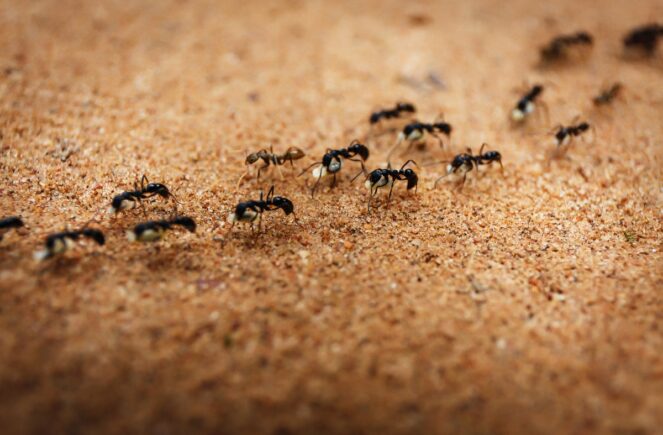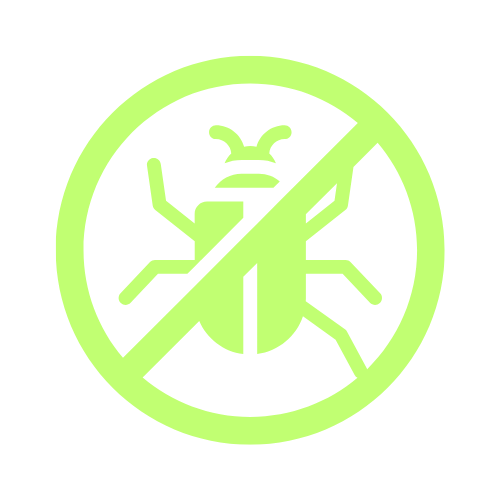MAPECO
SINCE 2002
Red Palm Weevil
The red palm weevil is one of the most destructive pests affecting palm trees in southern Europe. If you’ve noticed signs of damage in your palm trees, early action is critical. At MAPECO, we offer certified red palm weevil treatments in Marbella, combining curative and preventive solutions to protect your landscape from irreversible loss.
BUSINESSES
100% Discreet and Professional
Need to eliminate red palm weevil in Marbella?
If you’re seeing dry or collapsed fronds, unusual holes in the trunk, or a foul smell coming from your palm trees, you may already be facing an infestation. The Red Palm Weevil (Rhynchophorus ferrugineus) is an invasive species that bores into the heart of the palm, causing internal decay and, eventually, the collapse of the tree.
At MAPECO, we’ve been eliminating red palm weevil infestations across Marbella and the Costa del Sol since 2002, helping homeowners, communities and businesses save their palms with fast, effective and certified phytosanitary treatments.
Discreet & Professional
Business-Safe Solutions
Compliance Guaranteed

Professional pest control company in Marbella since 2002.
Early detection is essential
Look out for the following red palm weevil symptoms
Signs your palm tree may be infected
If you suspect an infestation, it’s vital to act quickly. Waiting too long can make recovery impossible.
Wilting or collapsed central fronds
Rotting smell from the palm crown
Holes in the trunk or base of fronds
awdust-like material around the base
Oozing sap, often brown or reddish
Audible "crunching" or hollow sounds from inside the trunk
Without treatment, the palm will die
dangers of the red palm weevil
What is the red palm weevil and why is it dangerous?
Native to Southeast Asia, the red palm weevil has spread rapidly through Mediterranean countries, including Spain. It specifically targets palm trees—especially the Canary Island Date Palm, Washingtonia, and Phoenix dactylifera species.
The weevil lays its eggs in the soft tissues at the top of the trunk. Once hatched, the larvae feed inside the palm, tunnelling through the core and weakening the structure from within. Because the damage occurs internally, infestations are often invisible until the tree is beyond recovery.
Without treatment, the palm will die—and may even fall, posing safety risks and financial loss.
EU-approved insecticides
Our Certified Treatment Process for Red Palm Weevil
At MAPECO, we are certified to perform phytosanitary treatments using EU-approved insecticides and professional equipment. Our red palm weevil control process includes:
Professional Inspection
We evaluate the health of the palm tree, looking for internal and external signs of infestation, and assess the extent of the damage.
Curative Treatment
If the tree is infected, we apply insecticide injections directly into the trunk, reaching the larvae inside. In some cases, external sprays are also used to kill adults and protect the surrounding area.
Preventive Treatment
For healthy palms or after successful recovery, we apply a systemic insecticide that continues to protect the tree from new infestations for months.
Follow-Up & Monitoring
We offer periodic follow-ups and optional maintenance plans, especially during peak seasons (spring and summer), when the weevil is most active.
FAQ
Local Technicians. Real Results.
Frequently asked questions about red palm weevil control
Can the palm tree be saved after infestation?
It depends on the severity and how early the infestation is detected. If the central fronds are still green and standing, treatment is often successful.
Do I need a permit to treat my palm?
No permit is required for treatment, but only certified companies like MAPECO are authorised to carry out phytosanitary injections
How often should preventive treatment be applied?
We recommend every 3–4 months during the warmer months (spring to autumn), when the red palm weevil is most active.
